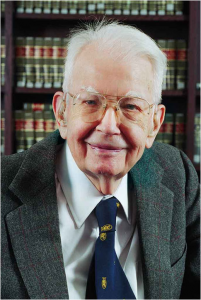The Class Action Fairness Act: History, Uses, and Differences from Traditional Diversity Jurisdiction
In 2005, Congress passed the Class Action Fairness Act (“CAFA”) in order to grant class action litigants in diversity cases easier access to the federal courts. The re-formulated sections under 28 U.S.C. § 1332 created a lower threshold to gain access into the federal courts for both the plaintiff class members, and the perspective defendants wishing to remove to federal court. Congress passed these new provisions in order to “restore the intent of the framers of the United States Constitution by providing for Federal court consideration of interstate cases of national importance under diversity jurisdiction.” In its deliberations over the bill, Congress specifically found that certain litigants used the previous jurisdictional regime to create many situations whereby certain cases with national importance did not qualify for federal jurisdiction based upon diversity. Additionally, Congress sought to address the age old concern of discrimination against out-of-state litigants.
Congress also mentions in its findings and purposes prelude to CAFA that over the previous decade (1995 – 2005), abusive practices of the class action device caused numerous harms, thus justifying this remake of the class action jurisdictional regime. But why in 2005? Perhaps because Congress wished to respond to the vast amount of litigation against insurers stemming from Hurricane Katrina, which made landfall in August of 2005. Perhaps because in 2005, Republicans held a majority in both the House and the Senate (and held the presidency), and as a general matter, the Republican Party, rightly or wrongly, is viewed as anti-plaintiff. In this view, Republicans wanted to allow insurance companies greater opportunities to remove to federal court (which is also seen, rightly or wrongly, as somewhat less pro-plaintiff than many state courts). Whatever the true reasoning, Congress did pass CAFA, and some of CAFA’s provisions are worth noting.
CAFA grants federal jurisdiction (through diversity) to class action cases where: (1) the amount in controversy, in the aggregate of all of the class members, exceeds $5,000,000 and (2) in a controversy in which ANY member of the class of plaintiffs is diverse from the defendant. CAFA then defines class members as those persons, named or unnamed, who fall within the definition of the proposed or certified class in a class action. Based on these threshold rules, a defendant could rather easily assert diversity from one of the unnamed or proposed class members. The removing party need not identify the diverse class member, but merely show by a preponderance of the evidence, using the face of the complaint or summary judgment type evidence, that it is reasonable to believe at least one class member maintains diversity from the defendant. Hardly a high hurdle to clear. However, several important subsections to CAFA help to qualify these basic underlying tenets, and may impose at least some further obstacles to navigate as a removing party.

